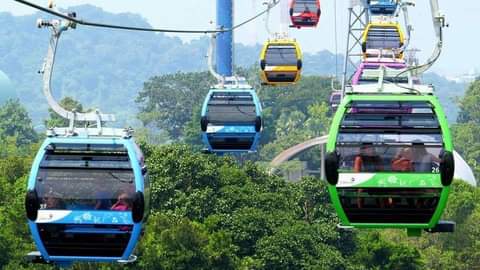
By 2025, Rwandans and visitors could start navigating the capital Kigali on aerial cable cars – saving them from growing traffic issues in land transport means .
Despite injecting 80% of its annual budget to expand infrastructure projects such as road network, City of Kigali faces a growing issue of traffic – and cable cars could be the next alternative for transport.
All the areas in Rwanda with the most mobility problems have been identified, and analysis of respective topography carried out. There have been proposed lines – five metro-cable lines – and “respective elevation and location were collected using Global Positioning System (GPS). Project investment cost estimates were also performed.”
It will improve accessibility and mobility for residents, particularly for those living in areas where the topography limits other forms of transport.
Some of the major advantages of cable car technology are the ability to climb gradients with slopes as high as 100 per cent or greater.
It also has minimum direct impact to the environment due to the use of electricity instead of fuel and reduced noise pollution, lower cost of implementation and operation than other transportation systems, and almost zero accident rates.